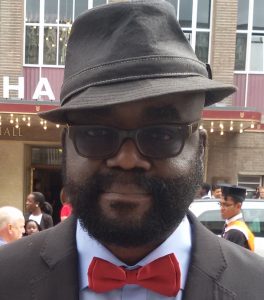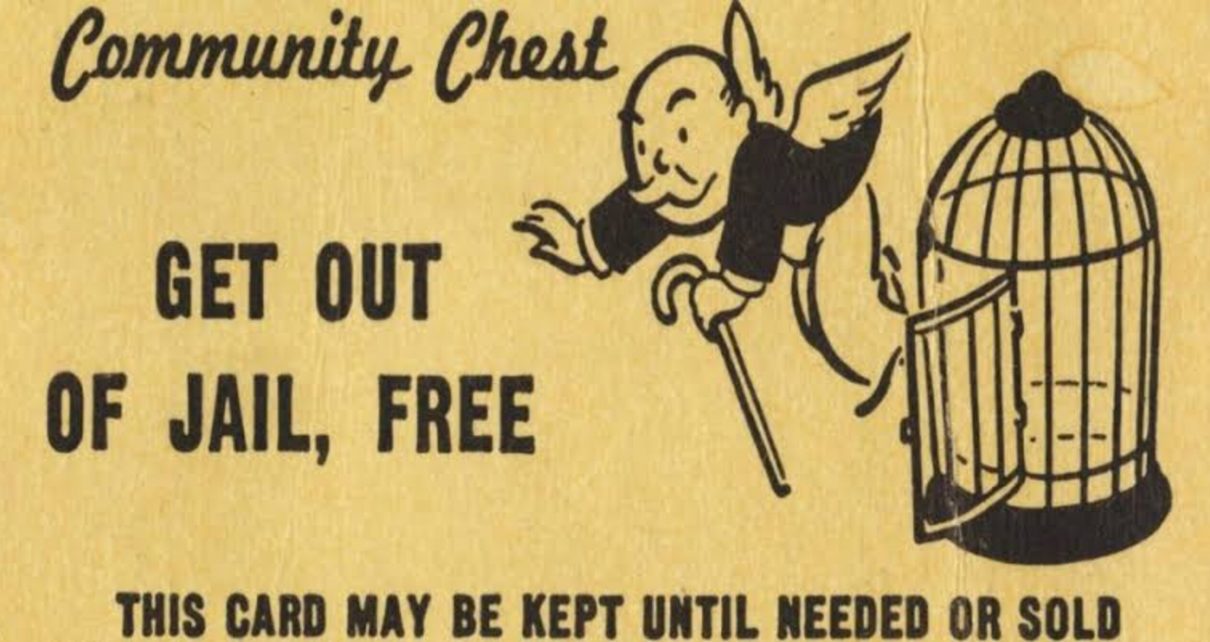
On the service lane of the Airport Road, Abuja, with a Road Safety patrol van far behind me, a commercial motorcyclist carrying three men came from the opposite direction at full speed. Riding against one way traffic on such a high profile highway? I was convinced the fellows were in big trouble as they were committing their traffic offence right in front of the law. But what happened? The Road Safety officials simply continued throttling behind me as the lawless crew zoomed past.
“That is what our country has become”, I muttered to myself. Everyone is law unto himself. The law cruises in the breeze while crime flies around in plain view.
From the low level of the plebeian to the high pedestal of political elephants, everyone believes that they should be free from the injurious consequences of their actions. Now, traffic lights are mere decorations in many of our cities. Motorists routinely run red lights unless there is a policeman wielding a stick nearby. If there is no threat of instant justice or arrest, the crooked-minded simply have a field day.
They are following the bad examples of their leaders who consider themselves above the law as soon as they attain political power. Over the years, senior government officials have repeatedly been implicated in scandals and escaped any form of punishment. The media blitz that attends every major exposé on corruption usually dies down as soon as a bigger distraction is manufactured to take the public’s eye off the ball.
To be sure, no patriotic Nigerian wants his country classified as a lawless nation. But we all know that, in many cases, the impression is that the laws were enacted as a necessary decoration for the garb of statehood. So, don’t call us lawless; we have laws. There’s just the little problem of our obsession with the Orwellian Animal Farm where “all animals are equal but some animals are more equal than others”.
The kind of corruption witnessed in the First Republic would be considered as the very definition of piety today. The military catapulted corruption to the stratosphere and the civilians who took over since 1999 have not only sustained the unholy tradition but actually reinvented it with all the meanness at their disposal.
The Nigerian political elite routinely steal public funds, flout court orders, resist court summons, and use their ill-gotten wealth to dribble their way back to power and influence. None of them is looking out for the country nor are they bothered about the damage they are doing to present and future generations.
A researcher, Fr. Atta Barkindo, gives an insight into the nexus between criminals and politicians: “They are able to perpetrate the violence because they thrive in lawlessness of a weak state promoted by the political culture of impunity. They are aware of how much the political class and the security forces could be influenced to bend the law. As earlier indicated politicians hire local militias and manipulate national, state or local political systems in support of their interests.”
What corruption can be greater than a situation where Nigeria, with a police force of about 395,000 men and women (i.e., 3.4 policemen per 1,000 inhabitants) allocates half that number for the personal protection of politically exposed persons and the monied class? It is no news that you can have a private police escort of your own if you have the cash.
Politicians have smeared other institutions with their blight. The judiciary and agencies of law enforcement have become tools in the hands of ‘those who must be obeyed’. Detainees are kept in lengthy pre-trial detention in subhuman conditions. Can we ever forget that Boko Haram founder, Muhammad Yusuf, was executed in police custody without trial? Having sown the wind, is there any wonder we are reaping the whirlwind today?
The prime law enforcer, the police, take the most blame for corruption and impunity because their crimes are committed mostly against the people at the grassroots, never against political leaders.
X-raying the matter, a legislator from Anambra State, Hon. Ben Chuks argues that, “Nigeria’s police force has the reputation of being a notoriously corrupt and ineffective institution whose failures lay at the heart of government failure to take effective action against impunity. In one recent public opinion survey carried out across Nigeria, respondents overwhelmingly voted the police to be the country’s most corrupt public institution. At the same time, the police’s capacity to carry out criminal investigations is extremely lacking.”
In fairness to the police, the institution is virtually in the pockets of politicians who wield them as political weapons. Abuses associated with political bigwigs and allies of the ruling party are not investigated, otherwise the backlash may claim the scalp of the police boss. Serious political crimes are condoned because the beneficiaries of the crime are in power.
We have heard many times that a police commissioner under public scrutiny was only following directives from above. It must be a tough job to be in position to interdict a criminal and fail to do so for fear of reprisals. To be on the safe side, police commissioners and their subordinates try to second-guess what the political bosses want by decoding their ‘body language’.
A story told by the aforementioned Hon Chuks illustrates the point vividly: “The Divisional Police Officer (DPO) in one town in Rivers State told Human Rights Watch that he witnessed a mob led by a local politician attack his police station on election day, destroying or stealing all of the election materials that had been stored there and driving off with the officers inside.
“Human Rights Watch interviewed him hours after the incident at his home, where he had shed his uniform and was drinking beer in the early afternoon to calm his nerves. Asked if he would make any arrests since he knew some of the individuals involved, he replied, ‘No, it’s impossible. The thing has come and gone. The only thing to do is to pray’.”
We have a long history of the security services and the judiciary failing to find and punish crime. This encourages impunity. When bad behaviour is condoned, there is no incentive to good conduct. At times, too, the wheels of justice grind ever so slowly as to make the final verdict academic. It sometimes takes forever to convict eminent thieves, especially the politically exposed variant. It is generally agreed by all and sundry that if your war chest is big enough, you can padlock justice or at least slow down the wheels of equity.
According to BudgIT, a civic organisation that applies technology to intersect citizen engagement with institutional improvement, “Our analysis of the #2021Budget reveals over 316 duplicated capital projects totalling N39.5 billion, among other loopholes for corruption. BudgIT also found ZERO audit records of the N10.02 trillion received by the security sector between 2015 & 2021.”
And yet, instead of probing how earlier allocations were spent, the National Assembly is rushing to approve more money for the armed forces. Without probity, the fresh provision may simply disappear into the abyss.
Celebrated cases which capture the imagination of the public are of particular concern. It has taken us years to prosecute the cases involving the former Chairman of the defunct Pension Reform Task Team, PRTT, Abdulrasheed Maina and Chukwudumeme Onwuamadike (alias Evans). And tongues are still wagging in respect of Attorney-General Abubakar Malami’s decision to withdraw charges against soldiers indicted for the killing of police officers who arrested the alleged kidnap kingpin, Bala Hamisu, popularly called Wadume. When the authorities decide to pick and choose what loophole to activate in the defence of alleged criminals, impunity laughs in our faces.
The Buhari government did itself a public relations favour when it announced the suspension of the Managing Director of the Nigerian Ports Authority, Hadiza Bala Usman. If that is meant to demonstrate the government’s seriousness with its much vaunted war against corruption, then it is a penalty kick well taken. Full marks for making the point that there should be no sacred cows.
If we want to fix Nigeria, the first thing we need to do is consign impunity to the rubbish pit. In the words of Marcus T. Cicero, “The hope of impunity is the greatest inducement to do wrong”.
- Wole Olaoye is a public relations practitioner and a public affairs commentator and can be reached at wole.olaoye@gmail.com


